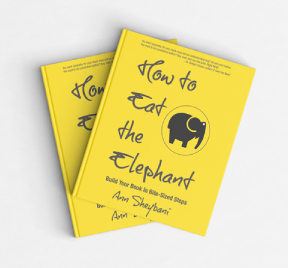Writing
The Other Half
April 27, 2010
I’m back at the small confectionary shop in Iran where Hannah, my husband’s niece, and I order frozen noodles. “One of the girls in my study group had a really hard time breaking her hymen on her wedding night, ” Hannah says, staring out the picture window at women in black chadors, girls in school uniforms, and a pack of teenaged boys who’ve congregated on the corner to swap stories and act macho. “She made the wedding night sound really horrible.”
She looks at me for confirmation, but I shrug my shoulders.
“They kept trying and trying and finally they had to give it up. He’d gone out to tell his mother that it wasn’t working and do you know what the woman did?”
I raise my eyebrows in expectation.
“She came into their bedroom and showed her son where to put it. Told him he had to push really hard. The mother wouldn’t let him quit even though the girl was screaming. They ended up rushing her to the hospital to keep her from bleeding to death.”
I stare at her in disbelief. She’s looking for some kind of assurance from me, I know, some kind of confirmation that sex and marriage and love can actually be sweet. But, I have none to give. My hands are tied. I can never tell her who I really am, an American who lost her virginity at sixteen in the backseat of a car, because to know this is to give her the power to ruin me with my husband. He’s warned me any number of times that he can’t deal with his family knowing the truth of what, not who, he’s married; that in all likelihood he would have to leave me in shame if they did. And even if I could speak, Hannah could never understand a culture she’s not been raised in. She would only judge my ways through her filter, just as I judge hers through mine.
“Just think,” Hannah continues. “There are some village families that will marry their daughter off once they turn nine. Imagine how painful it must be for them. My grandmother wasn’t much older than that when they married her to an old man. How awful that must have been for her.”

This meeting is days before Hannah is due to marry. We’ve had this conversation before, but of course I feel the need to reiterate it. “You’re twenty-one,” I say. “You’ll never finish college. You’ll marry, you’ll have a baby, and that’s it. End of story.”
I’d been so excited for this girl, the first in her family to finish high school and plan for college, imagining the kind of life books might open up for her, envisioning the opportunities that she doesn’t have the wherewithal to dream about for herself. I want more for her than her own family does. Their only concern is that she be a virgin when she marries. A goal I don’t consider the least bit lofty.
All of the hard-earned qualities that I value seem worthless here. Intelligence, kindness, ambition, and self-discipline are irrelevant when compared to the import of a flimsy strip of hymen.

Later, on her wedding night, I watch the whole procedure. Her husband emerges from the house, fully clothed, white cloth in fist. He looks extraordinarily satisfied. He tosses the handkerchief he’s used to wipe up Hannah’s blood in his mother’s lap and waits for her nod of approval. The old villager picks the thing up, stretches it taut between two arthritic hands, and smiles at the Rorschach blot in the center.
I feel sorry for Iranian men in general. How they get a bad rap for oppressing women when, in all honesty, it’s the old women who keep the young women ground down. My mother-in-law, as a case in point, hasn’t been unkind to me, but I know she’s asked my husband when he plans on taking a “real” wife, knowing that a Western women—likely soiled before marriage— could never qualify.
“Just for argument’s sake,” I say to my husband as I watch the handkerchief move from one hand to the next like a cherished family photograph. “ What would happen if there were no blood stain?”

He shoots me a warning glance. “Don’t even talk like that,” he says. “That’s not a thought to entertain.” He inflates his chest a little in a reflexive show of honor.
“No, really,” I insist. “Personalities aside, what happens to a girl who can’t prove her virginity?” I stand and study his face, waiting for an answer. I’m annoyed that he can’t have a dispassionate conversation about a hypothetical situation without leaning on theatrics.
“Well, these days a white cloth would mean an automatic divorce,” he says with some pride. “The girl would be chased out of the house and sent back to her family.” He lifts his arm and glances at his watch. “Back when I was a kid, the girl’s brothers would drag her by the hair and toss her down the nearest well. To salvage their good name.” Our daughter squirms on his shoulder. He pats her back a few times and kisses her on the ear. “They did that once to a girl when I was little. Threw her straight down the village well.” He thinks for a minute. “Or did they stab her? It’s so long ago I can’t really remember.”
Almost twenty years have passed since I attended Hannah’s wedding, yet it all comes back after picking up Half the Sky by Nicholas Kristof and his wife, Sheryl WuDunn. A book Walt had declared to be the most important read of the entire decade. In which two Pulitzer Prize winners make a passionate call to arms against our era’s most pervassive human rights violation: the oppression of women and girls in the developing world. Showing, most importantly, how a little help can transform the lives of women and girls abroad.
The couple focuses their attention on three particular areas of abuses: sex trafficking and forced prostitution, gender-based violence, including honor killings and mass rape; and maternal mortality.

They introduce real people, real stories, including one about a Pakistani girl, whose parents worried that their daughter would soon hit puberty and wanted to marry her off “before she might develop a crush on someone and start gossiping, or damage her most valuable possession of all, her hymen.”
And of course, I immediately thought of Hannah. And of Fati, another niece, a fat lump of a girl, who was considered something of a catch because she lazed around the house all day reading the Koran. And of my sister-in-laws, each married off to a cousin at the ripe old age of fourteen.
Americans have such a difficult time understanding this mind set. Yet, in the Middle East, premarital sex, or even the hint of it, doesn’t get a girl grounded, it gets her ass killed.
Of all the things that people do in the name of God, killing a girl because she doesn’t bleed on her wedding night is among the most cruel. Yet the hymen–fragile, rarely seen, and pretty pointless–remains an object of worship among many religions and societies around the world, the simulacrum of honor. No matter how much gold may sell for, a hymen is infinitely more valuable. It is frequently worth more than a human life.
Kristof and WuDunn go to great lengths to show that “the cult of virginity” isn’t just a Middle Eastern thing, that it’s historically widespread. Not only does the Bible advocate stoning girls to death when they fail to bleed, but even the ancient Greeks prescribed that no Athenian could be sold into slavery except a woman who’d lost her virginity before marriage.
And I loved it that the authors saw what I had. That it’s not just the men that keep the women down in these societies, but the women themselves:
In short, women themselves absorb and transmit misogynistic values, just as men do. This is not a tidy world of tyrannical men and victimized women, but a messier realm of oppressive social customs adhered to by men and women alike. As we said, laws can help , but the greatest challenge is to change these ways of thinking.
Because we are outsiders, we often miss the complexities of gender roles in the Islamic world. If you’ve not been raised in a culture, you’re blind to the nuances.
Westerners sometimes feel sorry for Muslim women in a way that leaves them uncomfortable, even angry…”You think we’re victims, because we cover our hair and wear modest clothing. But we think that it’s western women who are repressed, because they have to show their bodies–even go through surgery to change their bodies–to please men.”
vs.

All those years I lived in Iran, I bumped into folks who saw western involvement, not as helpful, the way we’d like to think, but as patronizing, imperialistic, and downright insidious. An evil Big Brother whose only real interest lay in usurping a country’s natural resources, not uplifting its citizens.

My natural reaction to such pointed criticism, a criticism I felt had an underpinning of truth, has always been to throw my hands in the air. Attending Hannah’s wedding, I couldn’t help wondering what the sense was of fighting any of it. Iran wasn’t my country, Iranians weren’t my people. I’d followed my husband to the Godforsaken place because I loved him, not because I thought I could save anyone, change anything. I could only stand there feeling embarrassed and ashamed for my friend. At the time, I supposed that was the least I could do. And I always knew that if that lifestyle bugged me enough, I could always go home.
Yet Kristof and WuDunn don’t allow for this kind of cop out. They point out several examples of seemingly impossible challenges that eventually got “fixed.”
Americans knew for decades about the unfairness of segregation. But racial discrimination seemed a complex problem deeply rooted in the South’s history and culture, and most good-hearted people didn’t see what they could do about such injustices. Then along came Rosa Parks and Martin Luther King Jr. and the Freedom Riders, along with eye-opening books like John Howard Griffin’s Black Like Me . Suddenly the injustices were impossible to look away from, at the same time that economic change was also undermining Jim Crow. One result was a broad civil rights movement that built coalitions, spotlighted the suffering, and tore away the blinders that allowed good people to acquiesce in racism.
Half the Sky isn’t just a bunch of heart-wrenching stories, but a demand for change. Kristof and WuDunn offer up solutions to many of the described problems, such as girls’ education and microfinance.

While they acknowledge that leadership must come from within the developing world itself, that it’s beginning to happen, they also emphasize our ability to help as individuals. “Today, the international movement for women needs “freedom riders as well–writing letters, sending money or volunteering their time.”
Imagine. Each of us can affect the world.
There are no excuses for tossing up the hands.
Here is just a small list of ways you and I can help. Check out some of these sites.
- www.womenforwomen.org (my personal favorite)
- www.cambodiaschools.com
- www.care.org
- www.creatinghope.org
- www.amddprogram.org
- www.penniesforpeace.org (run by Greg Mortenson, author of Three Cups of Tea )



